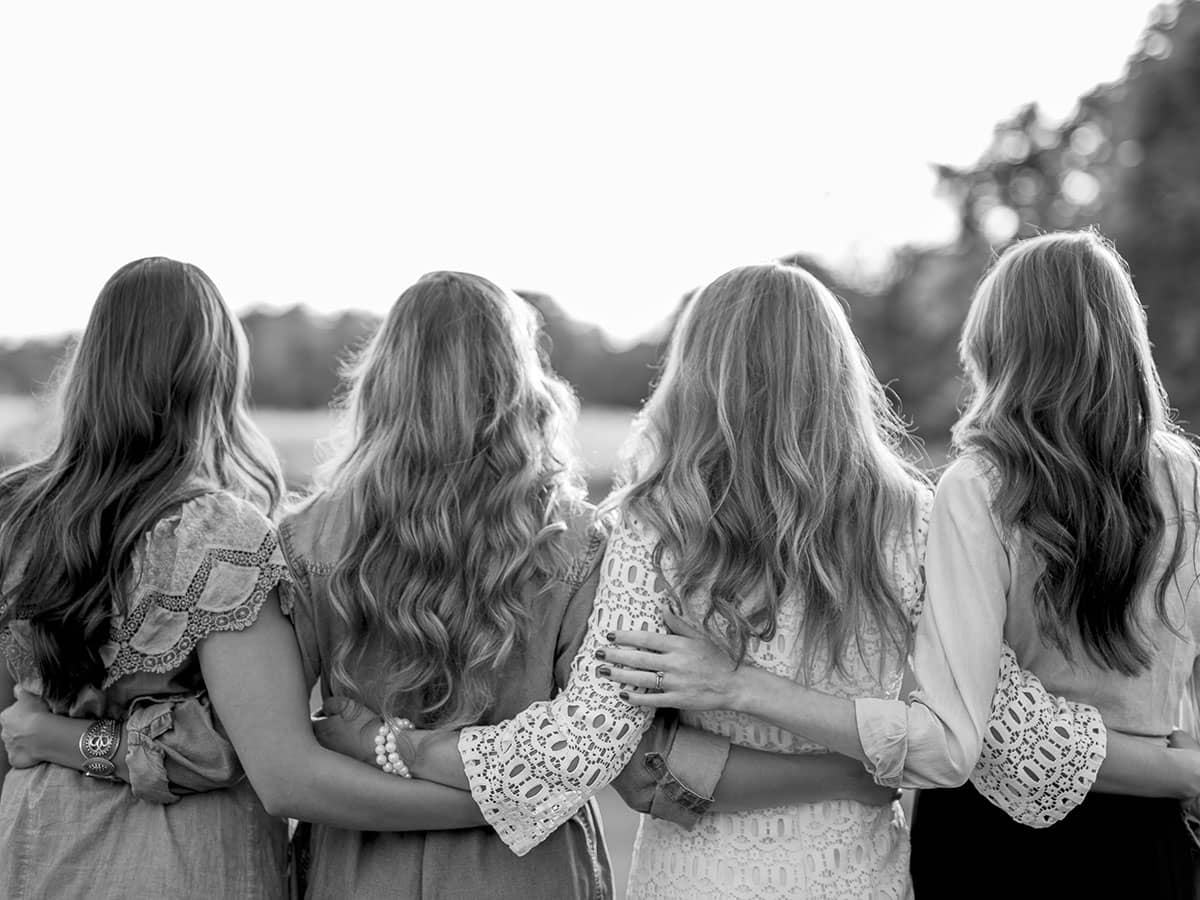
Some people keep friends from childhood, and this bond has many benefits. You knew each other through the growing pains and formative years, experiencing play, classes, and sports activities together. Therefore, this particular friend knows your fundamental character.
It’s a plus if you maintain ties during adulthood while you create your mature self. However, there can be some setbacks to having lifelong friends from childhood. There might be situations where friendships don’t improve our mental health or lives. Keeping those childhood friends and knowing when to let them go is essential.
Positive aspects of keeping childhood friendships.
There are some mental health benefits to having friends who knew you before you became an adult. Your peers helped mold you, and you may share memories of math class, the local pool, and high school graduation. These friends know when you’re happy and when you’re tired. Maybe your friend pushed you to ask out your crush, or you helped them learn how to drive. These memories likely form a significant part of who you are as you experience happy and sad times and you’ve shared numerous life events. No matter what happened, you may have vowed to be friends forever. A lasting childhood friendship is excellent because your friend knows more about you than most will.
There are also health benefits to retaining childhood friends. A 2021 study of 323,200 people from 99 different countries worldwide found that valuing friendships was linked with greater happiness, better health, and higher levels of well-being across cultures. According to research from Psychological Science, boys who spent more time with their friends as children had lower BMI and blood pressure when they developed into men in their early thirties. So, spending time with childhood friends is connected to better physical health, even in adulthood.
When childhood bonds are tested.
The teen and young adulthood years are typically transformational times in your life. As you’re remaking yourself with significant changes, you may lean toward other people. You’re testing the waters of who you want to be, and your long-term friendships may suffer the consequences. Friends move for job opportunities or college. Then you have to consider families and marriage. Sometimes, you may grow apart from your childhood friends, or your friendship fades. You may speak or text less often, lose touch, and no longer share the everyday trials and tribulations you’re accustomed to.
Adult friendships usually take the place of childhood friendships. These newer confidants experience your current world, neighborhood life, work life, social life and new lifestyle, getting to know the adult side of you, which can be a good thing. Now that you’ve forged your path, maybe in a new city, you’ve found a new circle to socialize with whose interests align with your adult self. As you’re making different choices, the friends you make in adulthood know your adult side better than your childhood friends.
Unfortunately, life happens, and sometimes, you grow apart from your old friends. What you had in common with them may have been getting in trouble, and you may feel it’s best to distance yourself from them. Perhaps you may still respect the child you’ve known since you were six but have drifted apart.
Negative aspects of keeping childhood friendships.
Sometimes, childhood friends can, knowingly or unknowingly, stunt your growth. For example, maybe you weren’t great in academics but excelled at sports in elementary school. Your brother was called “the brains,” while you were labeled “the athletic one.” Unfortunately, your athletic hopes didn’t result in you becoming a sports star, so you pursued a personal trainer career at the local gym. Still, you’re itching to do something new.
Childhood friends see us in ways that might freeze us in time, a perception that can prohibit us from being independent and moving in another direction. Those labels may box you in and restrict you. Perhaps you’ve internalized the label, struggling with the necessary high self-esteem and the confidence to pivot into a new field.
Your devotion to your childhood friend can also undermine your well-being. It’s challenging to let go of a friend from childhood as that feels disloyal. It may also feel like it’s not an option, depending on how long you’ve been friends and your history. Holding on to childhood friends means you overlook or make excuses for a friend’s negative or reckless behaviors. Be sure to consider a possibly misplaced loyalty if it damages your well-being and health.
If your childhood friend verbally abuses or bullies you, you should consider ending the friendship. Threatening, gaslighting, or blaming aren’t acceptable friend behaviors. If you avoid getting together with your childhood friend or they make you uncomfortable, consider ending the friendship. Also, if your friend constantly vents and uses manipulation and guilt, think about the toll the connection has on you. Your friend might be affecting your time, emotionally and mentally draining you. If you’re exhausted and trying to avoid them, your friend isn’t going through a challenging temporary period. You can show empathy, but know your boundaries.
Losing childhood friends can be terrible.
Choosing to walk away from a childhood friend can be a tough challenge. Did they forget your birthday, or are they acting in a way that you don’t appreciate with others? A job or love relationship might be stressing out your friend. Consider your role in the relationship if they’re excessively drinking or taking drugs. Take a step back if they show behaviors you don’t want to be linked with. There are solutions for stress relief, and perhaps you can help them. If they’re unwilling, decide if you want to end the friendship. Sometimes, knowing someone for years isn’t enough reason to maintain a friendship.
A childhood friend that lasts through your adult years has stood the test of time. Lifelong friends that start in childhood care about you even in your most vulnerable state. They’re honest with you, telling you what you need to hear, not what you want to hear. It’s reassuring to know this type of friend has your back because that level of trust is priceless. Keep and cherish the childhood friends who live vibrant, healthy lives and support you sustainably and positively.

